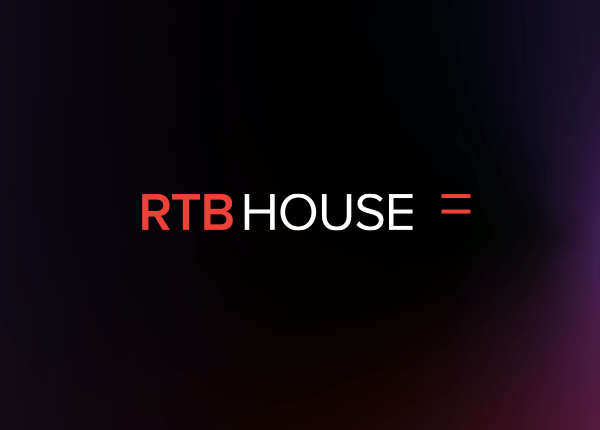Last Updated on: 24th May 2024, 08:57 pm
In this chapter of our “Media Review” series, we describe the results of the CMA investigation into Google’s Privacy Sandbox, Tech Lab’s release of “Seller Defined Audience” and more.
Table of Contents:
- CMA to keep “close eye” on Google as it secures final Privacy Sandbox commitments – Competition and Markets Authority (CMA)
- Introducing the Privacy Sandbox on Android – Google
- Making Sense Of Google’s Plan To Limit Tracking On Android – Digiday
- Tech Lab Releases “Seller Defined Audiences”, Aims to Democratize Cohort Development for the Open Ecosystem – IAB Tech Lab
CMA to keep “close eye” on Google as it secures final Privacy Sandbox commitments – Competition and Markets Authority (CMA)
= After more than a year of investigation into the Privacy Sandbox, CMA approved the final list of commitments submitted by Google. The aim of the investigation was to ensure that the initiative would not favor Google, leading to a further concentration of marketing spending.
= Over the course of the year, two commitment lists were published – the initial one in June 2021, and the second one in November 2021, which turned out to be the final one. Both of these publications were followed by consultation periods, during which any interested entity could submit its opinions. The first one resulted in tightening the commitments to the final form.
= The final list includes a lot of commitments, which aim is to increase transparency and the predictability of the Privacy Sandbox development while ensuring that Google won’t be able to share too much data across various elements within its ecosystem – which would heavily favor its products and services.
= Quite importantly, while the acceptance of the commitments closes the investigation, the CMA may reopen it in the future if necessary. There are also many mechanisms introduced in the commitments, which will hold Google accountable, such as the CMA’s oversight of the design of tests of replacements to the third-party cookies, or the standstill period of at least 60 days before Google can proceed with the withdrawal of third-party cookies.
Introducing the Privacy Sandbox on Android – Google
= After more than two years of work on the Privacy Sandbox for the web environment, Google announced its intention to implement this initiative on Android.
= Google claims that its aim is to provide more private advertising solutions to limit the sharing of user data with third parties and operate without cross-app identifiers. It shows that following Apple’s footsteps, Google plans to limit access to Google Advertising ID (GAID), a unique device identifier used for cross-app user identification.
= In its post, Google criticizes its competitors who have taken a restrictive approach to privacy without providing replacement mechanisms. At the same time, the company assured that the current tools will be supported for at least the next two years to ensure an appropriate transition period.
= Google also emphasizes its willingness to cooperate with both the industry and the regulators, showing that some major players like Snap, Rovio, and Duolingo appraised its approach and that it plans to apply commitments proposed to the CMA to the Android Privacy Sandbox as well.
Making Sense Of Google’s Plan To Limit Tracking On Android – Digiday
= As a result of Google’s announcement to introduce Privacy Sandbox on Android, many opinion articles were published across the internet, one of which was written by Ronan Shields and Seb Joseph from Digiday.
= The authors emphasize that while the reduction of cross-app identifiers on Android is a big deal, its impact is expected to be lower than what happened on iOS. The authors quoted the CEO of Branch, a mobile app measurement firm, which said that the company is not worried about this change.
= Another aspect important for the authors is that the change is not going to happen overnight, as Google plans to support the current tools for at least two years. Therefore, there is no need to panic for advertisers over this announcement.
= When it comes to the industry feedback on Google’s post, one crucial issue was raised by RTB House’s Łukasz Włodarczyk, quoted in the article, who said that it’s important to find the appropriate forum for discussion. Włodarczyk suggests that perhaps it could be focused not on a single environment, like web or app, but rather on the specific proposals as a whole. Such an opinion is related to the fact that the W3C, the key forum for discussion on web Privacy Sandbox, focuses on internet-related topics only.
= Additionally, the authors emphasize that as important as developing appropriate tools is to stop unwanted practices such as fingerprinting. It is a process where some companies try to identify the individual user by combining various data signals. Its popularity rose after Apple restricted access to IDFA, and despite it being against iOS policy, the tech giant fails to prevent it. Branch’s CEO claims it will be difficult for Google to be more effective than Apple in this area.
Tech Lab Releases “Seller Defined Audiences”, Aims to Democratize Cohort Development for the Open Ecosystem – IAB Tech Lab
= As the first addressability specification coming out of Project Rearc, IAB Tech Lab published Seller-defined audiences (SDA), a concept first introduced in March 2021.
= The idea behind the concept is to allow publishers, DMPs, and data providers to leverage first-party data to build audiences based on user interactions on their properties and map them to broad, standardized taxonomy. Afterward, taxonomy IDs can be passed to buyers to make informed bidding decisions.
= IAB Tech Lab emphasizes that the design of SDA aims to empower individual publishers to scale anonymized first-party datasets, instead of relying on external systems operating across domains. Also, the SDA design supports PMP-like integrations by removing the need for manual deal-ID creation. According to the organization, it can also train DSP machine learning systems via the rich set of metadata.
= IAB Tech Lab also claims that the SDA concept is very flexible: it also supports contextual signaling, and it does not require the use of standardized taxonomy – publishers may choose to use internal, proprietary taxonomy ranges by registering it in a Tech Lab maintained enumerated list within OpenRTB.
If you have any questions, comments or issues, or you’re interested in meeting with us, please get in touch.





























